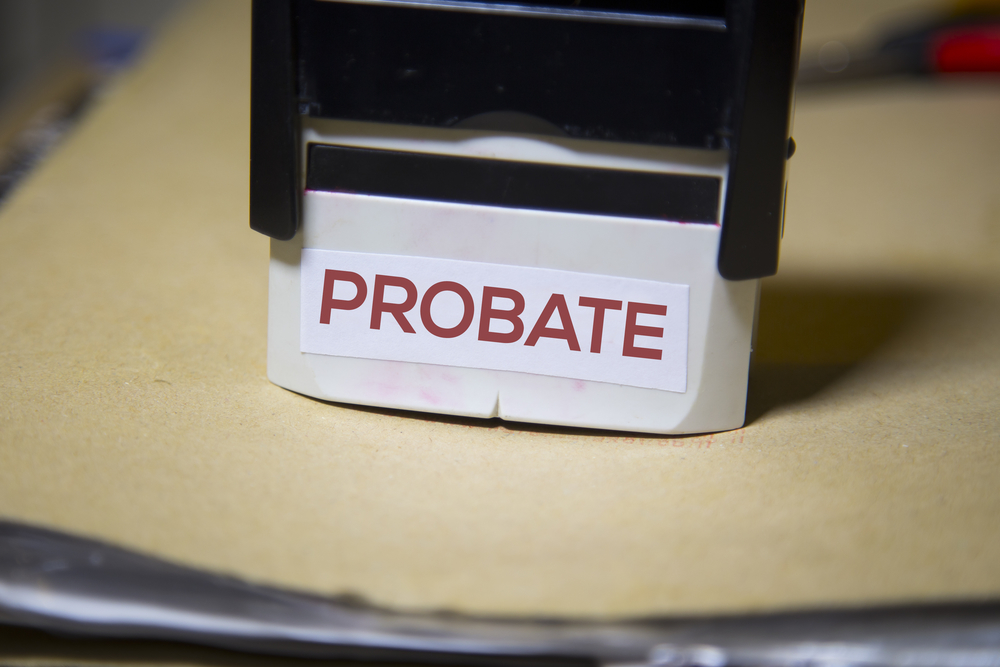
by Bill Miller | Dec 5, 2018 | Probate
Ella passed away while living in New York, but she owned several rental properties in Alabama. Jesse lived and died in Texas but docked his fishing boat in Alabama. Ella and Jesse have something in common: their estates will have to file ancillary probate in Alabama.
What Is Ancillary Probate?
When someone dies, their estate goes through probate in the state they were living in at the time of death. However, many people own property in more than one state. That’s where ancillary probate comes in. It’s a probate proceeding held in addition to the original proceeding.
How Does Probate Work?
The personal representative files the decedent’s Will to start the probate. If there’s no Will, an interested person files an application to be appointed administrator. The court appoints the personal representative, who begins to gather the decedent’s assets and claims against the estate. At the end of the probate proceeding, the personal representative distributes the decedent’s probate assets (after paying valid claims) to beneficiaries according to the Will.
Why Is Ancillary Probate in Alabama Necessary?
The probate court in the home state has no jurisdiction over property found in other jurisdictions. Depending on the assets and how they were held, the estate may have to file additional probate proceedings to dispose of property in the state in which the decedent did not reside.
For example, using the example above, Ella’s estate will be probated in New York. She lived there and it was probably her state of domicile. After her personal representative originates probate in New York, he or she will file for ancillary probate in Alabama to deal with the transfer of her Alabama property.
Can Ancillary Probate Be Avoided?
Sometimes. For example, had a revocable living trust owned the property that became probate estate assets, it probably would have transferred to heirs automatically after the grantor of the trust passed away.
Likewise, property may be titled in such a way that it does not become a probate asset. Jointly owned property may pass directly to the surviving owner without the need for probate.
Probate, trust and property ownership laws are complicated. Talk to an attorney as soon as possible if ancillary probate is needed, or if you want your family to avoid having to file an ancillary proceeding.
Learn More About Ancillary Probate in Alabama.
The attorneys at Miller Estate and Elder Law know how to help you with estate planning and probate, whether it’s an original proceeding or an ancillary proceeding. For a free consultation, contact us at 256-472-1900. Miller Estate and Elder Law is now located at 818 Leighton Avenue in Anniston, but we serve clients in Gadsden, Hoover, Talladega, Vestavia Hills, and surrounding areas.

by Bill Miller | Nov 29, 2018 | Estate Planning, Probate
One of the many benefits associated with estate planning is that you get to choose who gets your stuff after you are gone. However, that generally only works if you have actually done an estate plan! Someone who passes away without leaving a valid Alabama Will has lost the opportunity to voice their final wishes. Don’t let the state use Alabama intestacy succession to choose your heirs. A simple Will or trust lets you make all the decisions beforehand.
Intestacy and Probate
Someone who dies without leaving a valid Will is called “intestate.” Whether there’s a Will or not, the deceased person’s estate still has to pass through probate in most cases. However, depending on the size of the estate and family circumstances, probating an intestate person’s estate can be more complicated and more expensive when there’s no Will.
And your probate assets will be distributed according to state law, not the way you would have wanted.
Alabama Intestacy Succession Law
Property in an intestate estate pass to heirs based on Alabama law. Two of the factors that determine “who gets what” are:
- Whether the decedent was married, and
- Whether the decedent had any descendants.
Intestacy succession in Alabama provides for the estate’s distribution as follows:
| If decedent is survived by: |
Then probate assets pass: |
| a spouse, but no children |
entirely to spouse |
| a spouse, no children, parent or parents |
first $100,000 to spouse, then one-half of the rest |
| a spouse, children of decedent and spouse |
first $50,000 to spouse, plus one-half of the balance |
| a spouse, children of decedent but not surviving spouse |
one-half of the estate to the spouse |
| children of decedent |
in an amount based on degree of kinship to decedent |
| parents, but no spouse or children |
equally to the parents |
| no spouse, children, or parents |
to other children of parents (siblings) |
| no spouse, children, parents, or siblings |
to grandparents or children of grandparents based on degree of kinship. |
Not Having a Will Just Makes Everything More Complicated
Intestacy succession does not apply only when the deceased person didn’t leave a valid Will. In fact, a decedent’s probate assets that are not addressed in the Will may pass to heirs according to intestacy succession laws. It pays to make sure your Will is valid and up to date.
At Miller Estate and Elder Law, we make it our business to put our client’s needs first. We assist our clients in making legal decisions regarding their business interests. contact us at 256-472-1900. Miller Estate and Elder Law is now located at 818 Leighton Avenue in Anniston, but we serve clients in Leeds, Gadsden, Hoover, Talladega, Vestavia Hills, and surrounding areas.

by Bill Miller | Nov 24, 2018 | Estate Planning, Medicaid, Medicaid Planning
Some things just don’t go together, like oil and water or peanut butter and sardines. Sometimes it’s not a big deal – or the resulting problem is minor. But when something as important as your Medicaid eligibility is involved, that’s a different story. For example, do-it-yourself estate planning and Medicaid don’t mix at all. Here’s why:
What is DIY estate planning?
DIY stands for do-it-yourself. Americans are fond of taking on DIY projects ranging from planting an herb garden to building an addition onto their homes. However, your estate plan may be a lot more complicated and last a lot longer than the deck you built last year.
Due to the Internet, exposure to do-it-yourself estate planning has increased. People can click a few buttons and have a Will ready for signing. But DIY estate planning cannot analyze your particular circumstances, personalize your estate plan, listen to your concerns, and give information specific to special situations.
And it’s unlikely that DIY estate planning can address the need to plan for Medicaid eligibility.
What happens if you need Medicaid
Planning for expensive medical treatments, including long-term care, must begin before you need that care. DIY typically does not take that into account. You need an attorney who can review the facts of your case, then use knowledge of the law and experience to find the best options.
For example, a website algorithm may not take into account the Medicaid five-year look back period. Medicaid case workers will review an applicant’s financial history for 60 months prior to the date of application. Someone who uses DIY estate planning may sign the Will, then give assets to family members to decrease the value of his or her estate. Property may be titled or transferred in such a way that Medicaid eligibility is not affected. If done improperly, transfers or gifts made within that look back period may decrease, delay, or even prevent Medicaid benefits.
A lawyer who knows Medicaid can offer advice on how to avoid such penalties.
Medicaid Rules and Requirements Are Complicated
Don’t let DIY estate planning stand in the way of receiving benefits you deserve. Schedule a consultation with one of the attorneys at Miller Estate and Elder Law. Our phone number is 256-472-1900. Miller Estate and Elder Law is now located at 818 Leighton Avenue in Anniston, but we serve clients in communities like Hoover, Vestavia Hills, Irondale, and Calera.

by Bill Miller | Nov 20, 2018 | Elder Law, Medicaid Planning
Life throws curveballs sometimes, and we have to be ready. In her 40s, Joanie thought Medicaid planning was far ahead of her. She put off talking to her attorney about Medicaid planning. Unfortunately, she suffered permanent traumatic injuries as a result of a car accident. Her family frantically searched for ways to pay for Joanie’s 24/7 nursing care. As they started the Medicaid application process, they wished Joanie would have done some Medicaid planning.
Why Start Medicaid Planning?
Long-term care is expensive. There are basically three ways to pay:
- Self-pay, which can deplete a person’s life savings;
- Long-term care insurance, which may charge high premiums or be impossible to get; or
- Government benefit programs, like Medicaid.
Applying for Medicaid is not easy. For one thing, Medicaid uses a 60-month look back period. This means they review an applicant’s financial records for the 60 months prior to his or her application date. Certain transactions may cause Medicaid benefits to be delayed or even denied. However, Medicaid planning can take care of this before Medicaid is even needed.
For example, an individual might change their property titles or transfer all their property to a trust or just outright give real property or high-end assets to heirs. This type of activity must be done before the 60 month look back period, though.
How to Start Medicaid Planning.
Consult with an attorney who understands the Medicaid process. Specifically, you will want to talk to someone who knows
It may be possible for you to re-title your property. This can be tricky and lead to unintended – an unwanted! – consequences if done incorrectly.
An attorney who understands Medicaid planning may be able to give you more information about long-term care insurance. It’s not for everyone but can be an excellent way to pay for long-term care instead of digging into savings and retirement accounts.
Finally, there are trusts that may allow you to safeguard at least some of your hard-earned assets for your heirs.
Don’t Wait.
The attorneys at Miller Estate and Elder Law know how to help you with Medicaid planning. For a free consultation, contact us at 256-251-2137 or use our convenient Contact Form. We also offer free workshops and guides with more information about topics that matter to you. Although we’re located in Anniston, we also help clients in the Birmingham, Gadsden, Hoover, Talladega, Vestavia Hills, and surrounding areas.

by Bill Miller | Nov 19, 2018 | Medicaid, Medicaid Planning, Medicaid Qualification
If you have ever spent any time in an emergency room, you know how stressful it is. You may find yourself sitting beside a loved one anxiously awaiting a diagnosis. Or maybe you will be the one in need of emergency care. Either way, you may find yourself wondering how to pay for future medical treatments and long-term care. Medicaid may be an option, but first you need to find out if you or your loved one is eligible for Medicaid. Understanding Medicaid and its eligibility requirements might help.
First, Medicaid is funded by the federal government, but administered by individual state agencies. The program supplies health care for people in need. However, not everyone can receive Medicaid. Applicants to the program must meet strict requirements to qualify.
Understanding Medicaid Medical Eligibility
Some people think Medicaid is only for elderly people. However, there are several programs within Medicaid that aid other groups, like pregnant women and children.
Eligibility requirements vary depending on the program you apply for. No matter which program you choose, however, you must show a medical need, be disabled, or be blind. For example, to qualify for the Medicaid for Elderly and Disabled program, you may need to prove that long-term nursing care is needed.
Applicants also must meet income and resource limits to qualify for Medicaid coverage.
Understanding Medicaid Financial Eligibility
Income is only one test used to determine Medicaid eligibility. Applicants must also prove their assets and resources are within limits in most Medicaid programs. Also, income, asset, and resource limits may vary. For example, Medicaid limits for 2018 are:
- Qualifying Through SSI: Aged, blind, or disabled individuals may earn $770 per month for one person, $1,145 for a couple. Resources cannot exceed $2,000 (single) or $3,000 (couple) per month.
- Nursing Home Medicaid: Individuals eligible for institutional care have an income limit of $2,250 per month and a $2,000 resource limit as of the first day of the month.
- Home and Community Based Waivers: The limit is $2,250 per month for income and $2,000 per month for resources.
This list does not include other programs, such as those for children, parents and caretaker relatives, pregnant women, among others.
Applying for Medicaid Is Hard. We Can Help.
The attorneys at Miller Estate and Elder Law understand the estate planning needs of their clients. Contact Bill Miller at 256-251-2137 to schedule an appointment. Though our office is now located at 818 Leighton Avenue in Anniston, we serve clients in Gadsden, Hoover, Talladega, Vestavia Hills, and surrounding areas.




